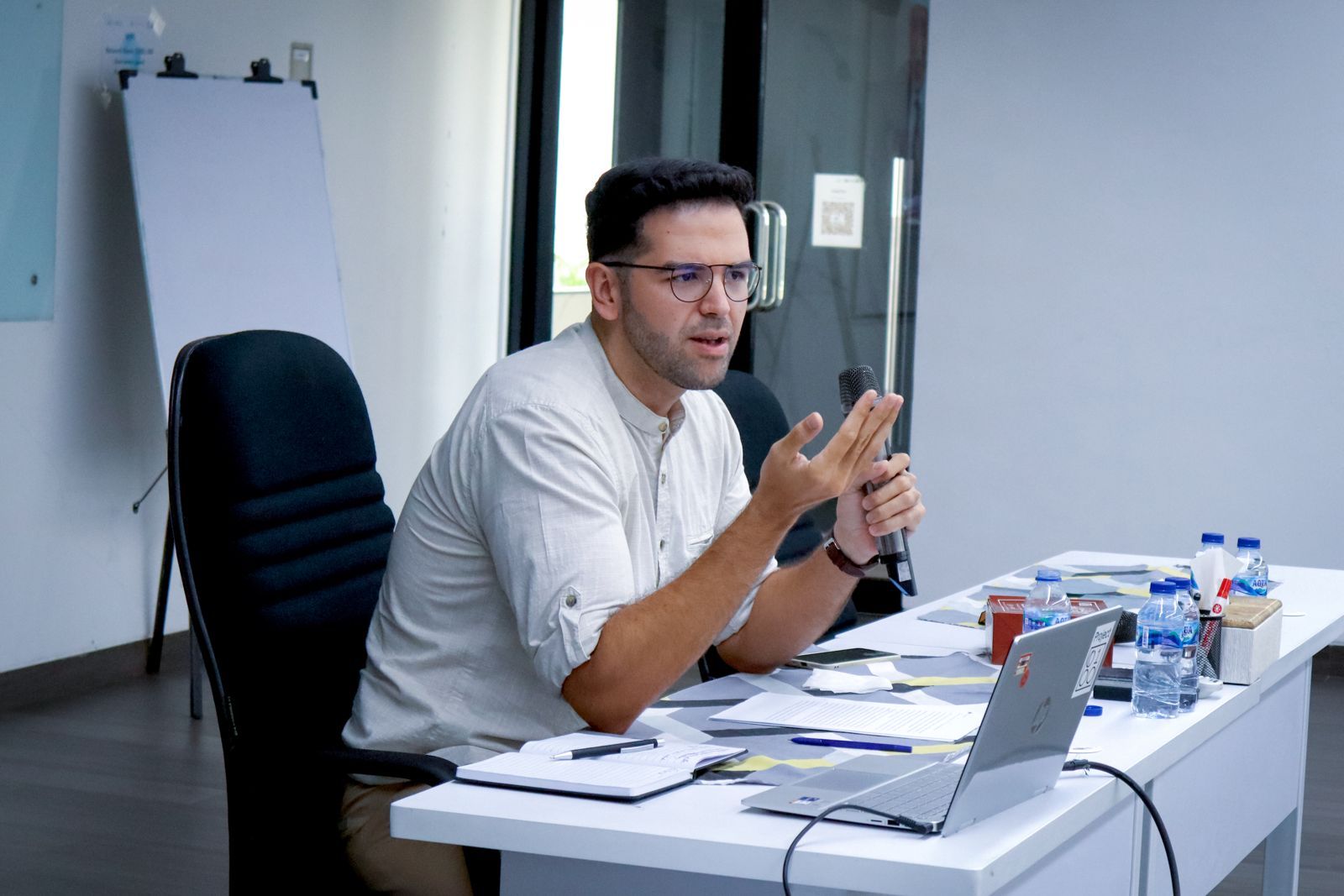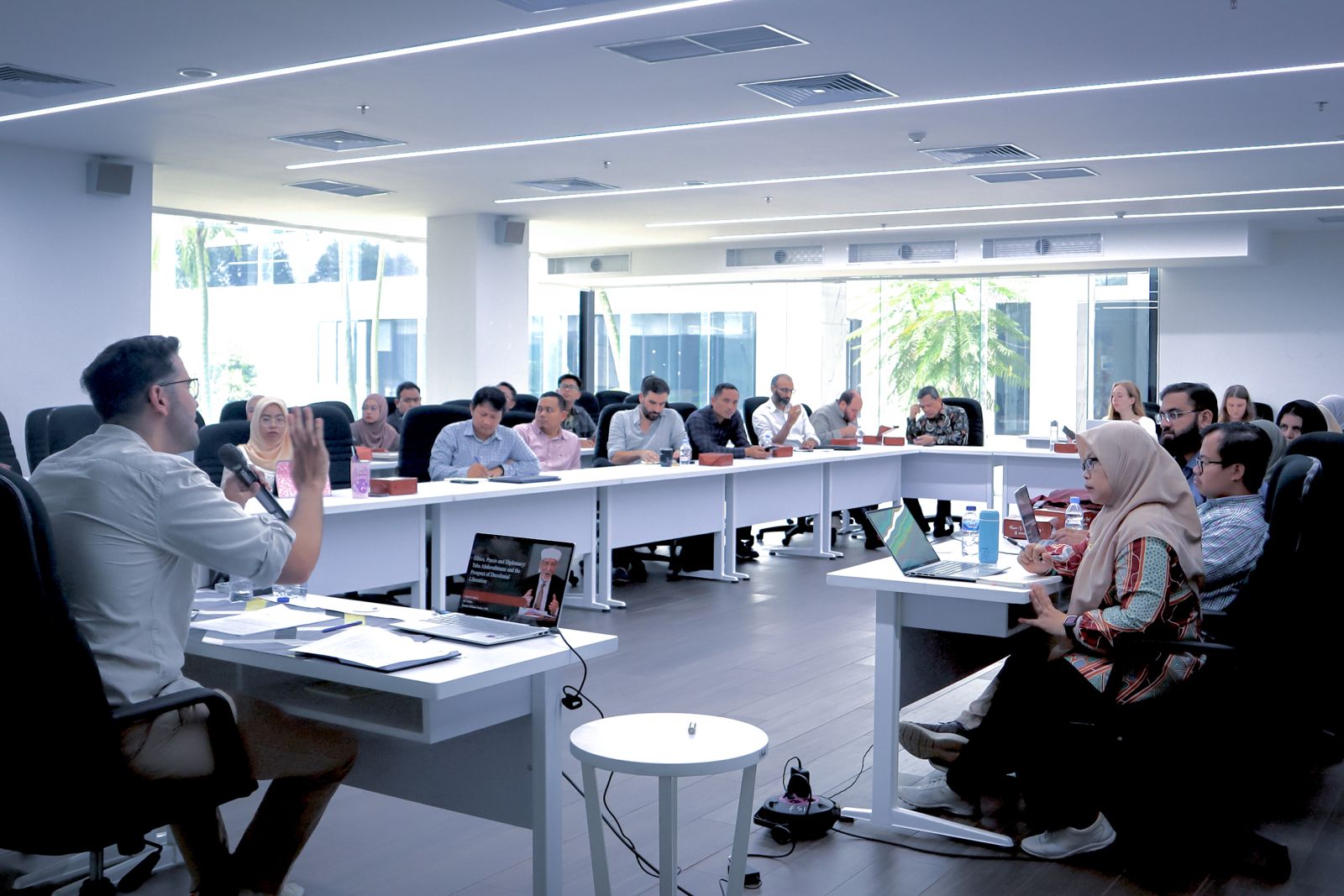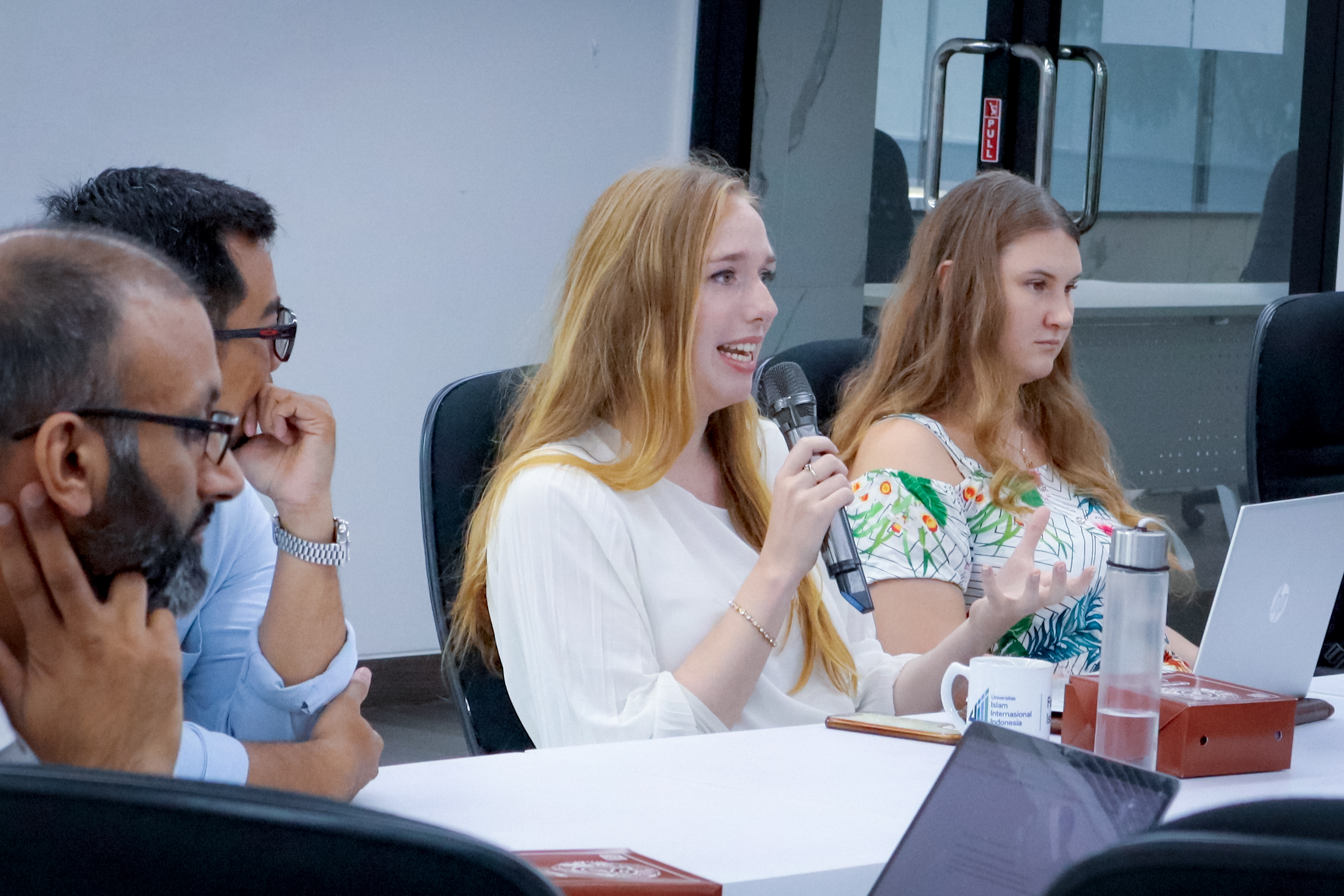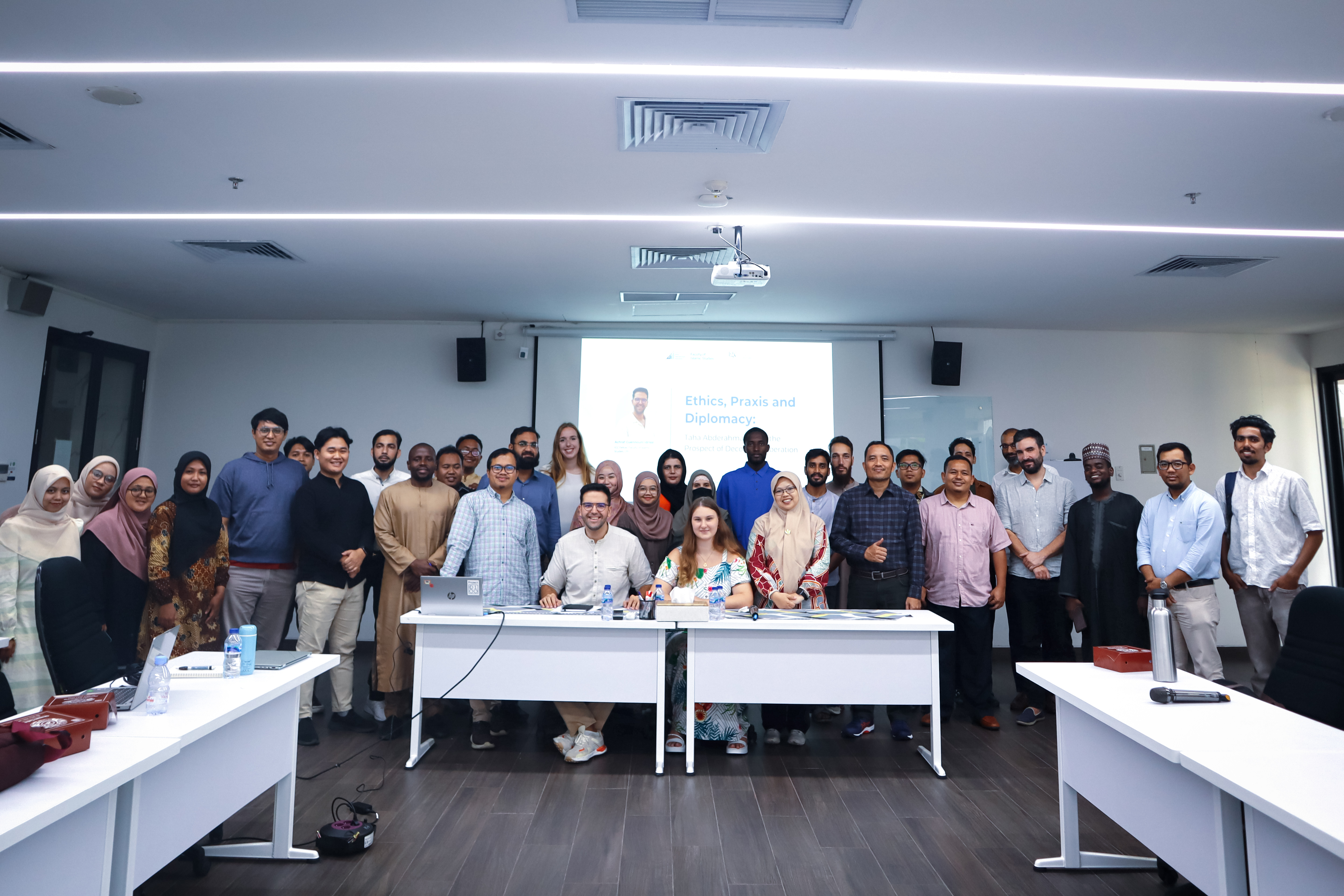Ethics, Praxis, and Diplomacy in Islam

The Faculty of Islamic Studies at Universitas Islam Internasional Indonesia (UIII) hosted a thought-provoking seminar titled, “Ethics, Praxis, and Diplomacy: Taha Abderrahmane and the Prospect of Decolonial Liberation.” The event featured Dr. Achraf G. Idrissi, a post-doctoral fellow at the UIII’s Center of Islam and Global Challenges (IGC), who specializes in the intersection of diplomacy and Islamic ethics.
Holding a PhD from the University of Debrecen, Hungary, Dr. Idrissi focused his research on decolonial studies, cultural studies and north American and English Studies. At the seminar, Dr. Idrissi offered fresh insights into Islamic philosophical ethics as framed by the Moroccan philosopher Taha Abderrahmane.
Dr. Idrissi began his presentation with Abderrahmane’s concept of al-Maj?l al-Tad?wul?—the domain of communication and interaction among creators of heritage, highlighting the importance of the “Right to Philosophical Difference.” This idea, he explained, supports a framework for cross-cultural dialogue and the respect of diverse perspectives in diplomacy, setting the foundation for a decolonial approach to international relations.
Central to Abderrahmane’s philosophy is the concept of reason (al-?aql) as an act that is not only intellectual but also deeply moral and emotional, seated in the ‘heart’. Dr. Idrissi referenced verses from the Qur’an, such as Surah Al-Hajj (22:46), to underscore how Islam positions reason as an ethical act, aligning thought with the spiritual and moral dimensions of human experience. This Islamic view of reason diverges from Greek philosophy, where reason is abstract and speculative, by presenting it as dynamic and ever-renewing—a quality Dr. Idrissi identified as essential to the Islamic model of diplomacy.
Dr. Idrissi identified as essential to the Islamic model of diplomacy. Dr. Idrissi then explored Abderrahmane’s Trusteeship Paradigm (al-Ittim?niyya), which is grounded in three guiding principles: Witnessing (Sh?hidiyya), which fosters identity through divine consciousness; Entrusted Property (Am?na), which emphasizes moral responsibility and ethical consistency; and Self-Purification (Tazkiya), which supports spiritual growth and an ethical transformation beyond material pursuits. These principles, he suggested, offer a blueprint for an ethical diplomacy that counters the secular limitations of Western diplomatic frameworks.
The seminar concluded with a lively discussion on the application of Abderrahmane’s ideas in modern diplomacy, especially within the Islamic world. Dr. Idrissi expressed optimism that incorporating these principles into contemporary diplomatic practice could promote a more compassionate and ethically grounded approach to global affairs, redefining diplomacy as a bridge for spiritual and moral understanding.
This seminar was part of the Faculty of Islamic Studies’ ongoing commitment to exploring the ethical dimensions of global challenges, as well as to encouraging critical engagement with both historical and contemporary issues in Islamic thought.

